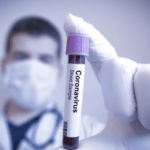The Commission has put forward proposals to ensure the continued long-term supply of medicines from Great Britain to Northern Ireland and to address outstanding supply concerns in Cyprus, Ireland and Malta.
In the context of the Protocol on Ireland/Northern Ireland, this means that the same medicines will continue to be available in Northern Ireland at the same time as in the rest of the United Kingdom, while specific conditions ensure that UK-authorised medicines do not enter the Single Market.
In detail
With today’s proposed solution, the Commission is delivering on its intention to facilitate the implementation of the Protocol on Ireland/Northern Ireland on the ground, in line with the package of far-reaching solutions for Northern Ireland tabled on 13 October 2021. The EU will amend its own legislation on medicines to ensure that:
- Generic medicines (such as paracetamol) can be authorised under national UK procedures, in compliance with EU rules on medicines. People in Northern Ireland will have access to these medicines at the same time as people in the rest of the UK.
- People in Northern Ireland will also have access to innovative life-saving medicines (including new cancer medicines) at the same time as any other person in the UK. A ‘bridging solution’ will allow any new medicine authorised in the UK to be supplied to Northern Ireland, until the relevant authorisation is also given in the EU. This ‘bridging solution’ is in addition to the existing compassionate and emergency use mechanisms under EU law.
- All regulatory functions can remain in the UK if they are currently located there.
- For medicines brought into Northern Ireland from the rest of the UK, batch testing does not need to be repeated if it has already been carried out in Great Britain or the EU.
- No manufacturing authorisation or import licenses are needed for medicines supplied from Great Britain to Northern Ireland, subject to certain conditions.
- Authorisation by the UK regulator can allow companies located in Great Britain to use a single pack and leaflet when supplying markets in Great Britain and Northern Ireland. There would be no need for separate packaging.
- Malta, Cyprus and Ireland will benefit from certain derogations for a three-year period. For example, during this period in these three countries, importers of medicines from the UK will not need to hold manufacturing authorisations, nor will these medicines need to be batch tested again if they have already been tested in the UK. This will give operators more time to adapt. Work on a long-term permanent solution is ongoing in the context of the EU’s Pharmaceutical Strategy.
Thiss proposals also require the UK to respect certain conditions:
- The proposal provides for packaging requirements to ensure that UK-authorised medicines do not enter the Single Market.
- The UK assumes sole responsibility for authorising medicines for Northern Ireland. This is contingent on the UK complying substantively with EU law on quality, safety and efficacy of human medicines when issuing market authorisations for Northern Ireland. This reduces risks for the EU Single Market.







Leave a Reply